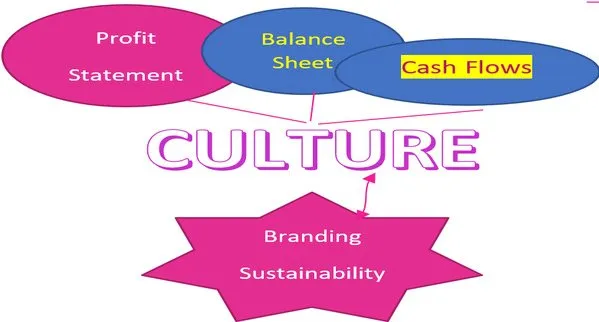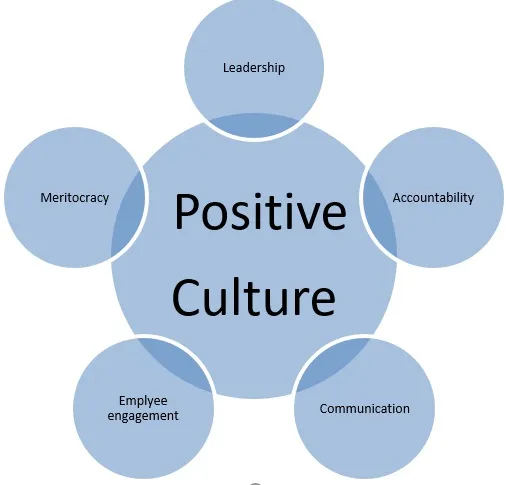
Culture is the ways things are done in an organization. It could be the pool of attitudes, traditions, perceptions and of an organization. It is more of an understanding, manner of thinking and acting and not formally documented.
Financial performance is the optimum use of resources to generate maximum profits without compromising on quality and efficiency of services and operations. It leads to good branding and high enterprise valuation.
Culture an abstract concept that influences performance expressed in numbers. Culture slowly evolves and settles, a static issue that drives financial performance which can be volatile. Culture is a social concept impacting figures that are technically arrived at.
Employee engagement is one of the keys to foster a positive culture. Employees must feel wanted, appreciated and derive job satisfaction. They must be given importance and be part of decision-making process. Good culture reduces energy draining activities and increases productivity.
Employees’ understanding of what is required from them, their opinion of management, their rapport with co-workers, aspects of the organization like the layout, hygiene etc., social events celebrated with colleagues are aspects that can influence culture.
A good inhouse culture enhances branding and company image to the outsiders.
Strategy, processes and systems must be designed that makes employees’ respect each other, be focused, give attention to detail, be passionate about their work and be team oriented. This fosters a good culture.
Other aspects that create a good culture are management being open to new ideas, encouraging futuristic thinking and rewarding merit and discouraging sycophancy,
Finance function traditionally perceived as involving all the complexities relating to raising finance, utilizing money, allocating and recording it has gradually extended to creating an ethical climate for long-term survival. It requires decision making based on values.
Organization culture though difficult to describe must be allowed to evolve and needs to be continuously cultivated and maintained. Culture creation cannot be left to chance. It must be consciously created.
A cultural model suitable to one’s firm must be consciously built.

Company culture can be created by leadership, accountability and communication. It would be a good idea to have a Cultural Audit that reports on behavioural patterns that are positive drivers and which are negative drivers of profits and sustainability.